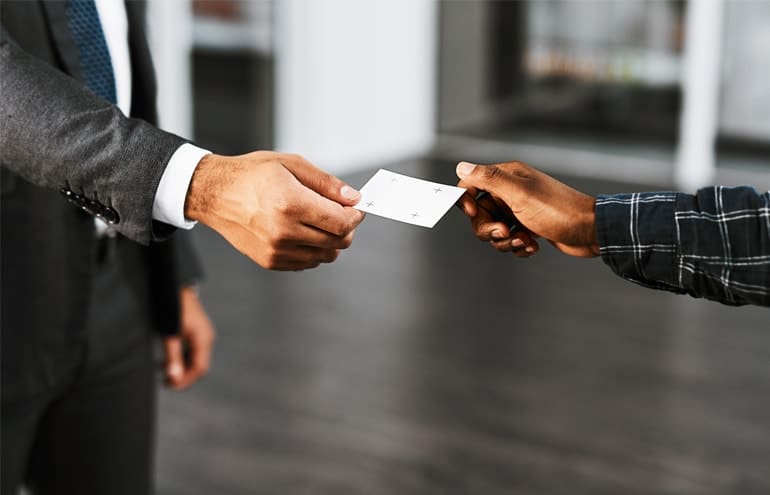Question: What’s the current thinking on attorney business cards? They seem like an anachronism in a digital world. But without them, I don’t know how I’d invite someone to contact me. What do lawyers “in the know” do?

Remember that any form of marketing collateral “speaks” to the recipient, and when it comes to branding, your business card is an extension of your firm’s identity.
There is no arguing that electronic devices have opened up a wonderful, interactive world of business communication, but there is still value in things you can touch and feel as well. Without making use of the best of both digital and traditional methods, what have you missed out on sharing?
Tina Emerson is marketing director at Rogers Townsend & Thomas, PC, a full-service firm headquartered in Columbia, SC. With 15 years of B2B communications experience, she leads the marketing and business development efforts for the firm’s offices in North Carolina and South Carolina. Follow her on Twitter @tfemerson.

Ultimately, business success requires engaging in strong offline and online activities. Use social networking platforms to establish an online presence, but extend your offline identity as well. Having a physical representation of your online identity is more than just a way to exchange contact details. It helps tell your unique story.
Without question, the lines are blurring between online and offline networking. Nevertheless, do not expect the humble, reliable and evolving business card to disappear any time soon. Good things tend to stand the test of time.
David McCann is the senior manager of marketing and communications at Snell & Wilmer, a business law firm with offices in the western United States and in Mexico. He is the 2013 immediate past president of the Legal Marketing Association, Southwest Chapter, and can be reached at dmccann@swlaw.com.

To reach out to contacts, and for optimal professional networking and client generation, create two habits:
- Set aside 10 minutes daily to socially connect to those you know or want to know.
- Socially connect with new contacts within five days of introduction.
It is the easiest, most time-effective way to generate your social network.
Short on time? There are great phone apps that convert business cards to contact information through digital scan. Check out CardMunch, Cardcloud and Google Goggles.
It is important to remember that while many of us have embraced the digital world, there are those who have not. Not everyone carries a smartphone to bump. Are you willing to risk losing clients because you are without an inexpensive business card? Don’t do away with the tactile card and the immeasurably important personal hand-to-hand contact that comes with its exchange.
Stacy A. Smith is the firm administrator and director of marketing and client relations at Carter Conboy in Albany, NY.
The Legal Marketing Association provides professional support and education as well as opportunities for intellectual and practical information exchange.
Image © iStockPhoto.com

















